Is the Catholic Church in crisis?
From costly sex-abuse payouts to a growing shortage of priests, the Church is facing enormous challenges
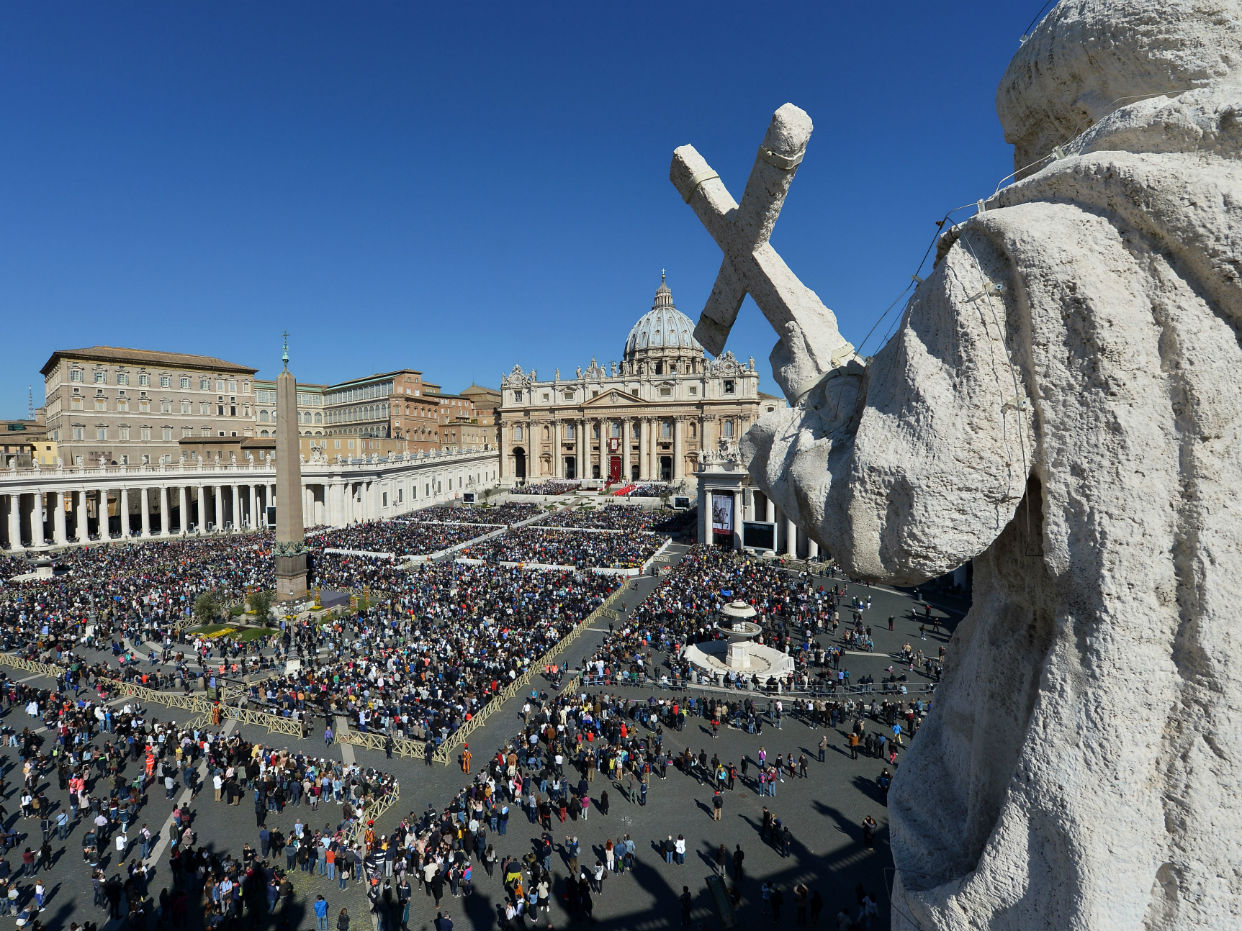
A free daily email with the biggest news stories of the day – and the best features from TheWeek.com
You are now subscribed
Your newsletter sign-up was successful
There are more Roman Catholics in the world than ever before. Numbers have risen to 1.26bn, up from 626m in 1970, according to Georgetown University’s Centre for Applied Research in the Apostolate (Cara), with Asia, Africa and the Americas providing the bulk of the increase.
But the gap between those who call themselves Catholic and those who actively attend church is widening.
Although mass attendance remains relatively steady in many Asian and African countries, the percentage of Catholics who attend mass at least once a week has dropped steeply in Europe, from 37% in 1980 to 20% in 2012, while in the Americas, it has dropped from 52% to 29% in the same period.
The Week
Escape your echo chamber. Get the facts behind the news, plus analysis from multiple perspectives.

Sign up for The Week's Free Newsletters
From our morning news briefing to a weekly Good News Newsletter, get the best of The Week delivered directly to your inbox.
From our morning news briefing to a weekly Good News Newsletter, get the best of The Week delivered directly to your inbox.
So is the Catholic Church at a turning point?
Absent fathers
Declining church attendance is not a sudden phenomenon, nor one limited to Catholicism. For decades, “traditional” Christian denominations have been shedding parishioners to old age, newer forms of Christianity or simply to nothing at all. In 1990, 10m Americans classified themselves as “former Catholics”; in 2016, that number had risen to 30m, says Jesuit magazine America.
One aspect particularly setting the Catholic Church apart is that those parishes that maintain a flock are increasingly unlikely to have a full-time shepherd.
A free daily email with the biggest news stories of the day – and the best features from TheWeek.com
Cara estimates there are currently 415,656 men in the priesthood – a number little changed from 1970 – while the Church’s population has almost doubled.
This is particularly evident in Europe and the Americas. In the US in 1965, for instance, only three in every hundred parishes were without a resident priest; today, that figure is one in five.
“In every other [Christian] group, including denominations in which membership has declined (e.g., the Episcopal and Evangelical Lutheran churches), the total number of clergy has increased,” says America Magazine.
So why is the Catholic Church falling behind on this front? One obvious answer is the restrictions placed on the priesthood, most notably celibacy. While Pope Francis says he is open to the possibility of ordaining married men in the most under-staffed areas, he was clear that “allowing priests in training to choose whether or not to be celibate was ‘not the solution’”, The Guardian reports.
There may be another reason. Bishop Matthew Kukah of Sokoto, in Nigeria, says money is at least partially to blame for the Church’s failure to expand its influence and attract new clergy.
“The Arab world is pouring money into Nigeria. The Pentecostal pastors in America are doing the same,” he said last month, La Croix International reports.
Europe, however, had “turned its back on Christianity”, he added. “It is no longer possible for bishops to address the historically Catholic countries to request financial aid for Church projects.”
The price of silence
Both the declining appeal of the priesthood and the tightening of the ecclesiastical purse strings can be explained at least partially by one particularly sordid episode: the child sex-abuse scandals.
Widespread allegations of sexual abuse of minors by Catholic priests and other members of religious orders first began to receive public attention in the 1990s. By the turn of the 21st century the extent of the abuse – and the Church’s attempts to hush it up – had become clear.
Victims who attempted to report their abuse spoke of being ignored or intimidated by Church officials, while priests and monks accused of such crimes were frequently transferred to other parishes – sometimes multiple times – rather than reported to the police.
The financial as well as spiritual trauma of these revelations has rocked dioceses around the world. While Vatican secrecy surrounds the Church’s finances, individual parishes report they are struggling to cope.
In 2007 alone, the US Roman Catholic Church, traditionally a major investor in international outreach, spent more than $615m settling sex abuse claims, the Denver Post reported in 2008. According to Reuters, by 2013, almost a quarter of all US parishes were in debt.
In Australia, meanwhile, the Catholic Church says it expects to pay an additional AUS$1bn (£580bn), on top of the A$300m (£173m) it has already paid out, to thousands of people abused in churches, schools, orphanages and hospitals between 1980 and 2015, ABC News reports.
Is the Pope a Catholic?
A less tangible but no less traumatic crisis is also raging throughout the Church, although this time of a theological nature.
Pope Francis’s well-publicised humility and emphasis on mercy rather than judgment has made him popular in the secular world, as well as with much of the laity. However, for many Catholic traditionalists, the Pontiff is a troubling figure.
They argue that the Church’s value to the faithful comes from offering a moral code that has remained constant throughout the centuries. Diluting supposedly eternal doctrines to accommodate the secular world, as the modernising spirit of the current papacy seems to contemplate, is seen as eroding the Church’s credibility and, consequently, its hold over believers.
Conservative distrust of Pope Francis has crystallised around a footnote in his 2016 missive on the family, Amoris laetitia (The Joy of Love).
In it, the pontiff wrote that holy communion “is not a prize for the perfect, but a powerful medicine and nourishment for the weak” and that in certain cases, a priest’s responsibility to support a remarried parishioner in their religious life “can include the help of the sacraments”.
Conservatives were stunned. Allowing remarried Catholics to receive communion would be tantamount to abandoning one of the fundamental tenets of the Church, the indissolubility of marriage, they argued.
In November 2016, four cardinals wrote to the Pope asking clarification, openly publicising their queries in a rare show of opposition. Dissent went even further this July, when 62 conservative clergymen and theologians sent the pontiff a formal “correction” regarding seven “heretical” implications in his pronouncements on sexual relations and family life. It was the first time such a correction had been issued to a pope since 1333.
The Pope has declined to respond directly to the dissenting cardinals or the correction, which has done little to reassure his critics.
“Whenever two priests meet, they talk about how awful [he] is,” one conservative English priest told The Guardian, adding: “You mustn’t print any of this or I’ll be sacked.”
“The present crisis is the most serious since the liberal reforms of the 1960s,” says the Guardian
The next papal election will be a crunch point. Cardinals will have to decide whether the best bet to ensure the Church’s continued relevance is to continue Francis’s legacy or destroy it - “and on that question,” says the paper, “the future of the Catholic church now hangs”.
-
 How the FCC’s ‘equal time’ rule works
How the FCC’s ‘equal time’ rule worksIn the Spotlight The law is at the heart of the Colbert-CBS conflict
-
 What is the endgame in the DHS shutdown?
What is the endgame in the DHS shutdown?Today’s Big Question Democrats want to rein in ICE’s immigration crackdown
-
 ‘Poor time management isn’t just an inconvenience’
‘Poor time management isn’t just an inconvenience’Instant Opinion Opinion, comment and editorials of the day
-
 Is the Catholic Church taking on Trump?
Is the Catholic Church taking on Trump?Today's Big Question Pope calls for ‘deep reflection’ on immigration
-
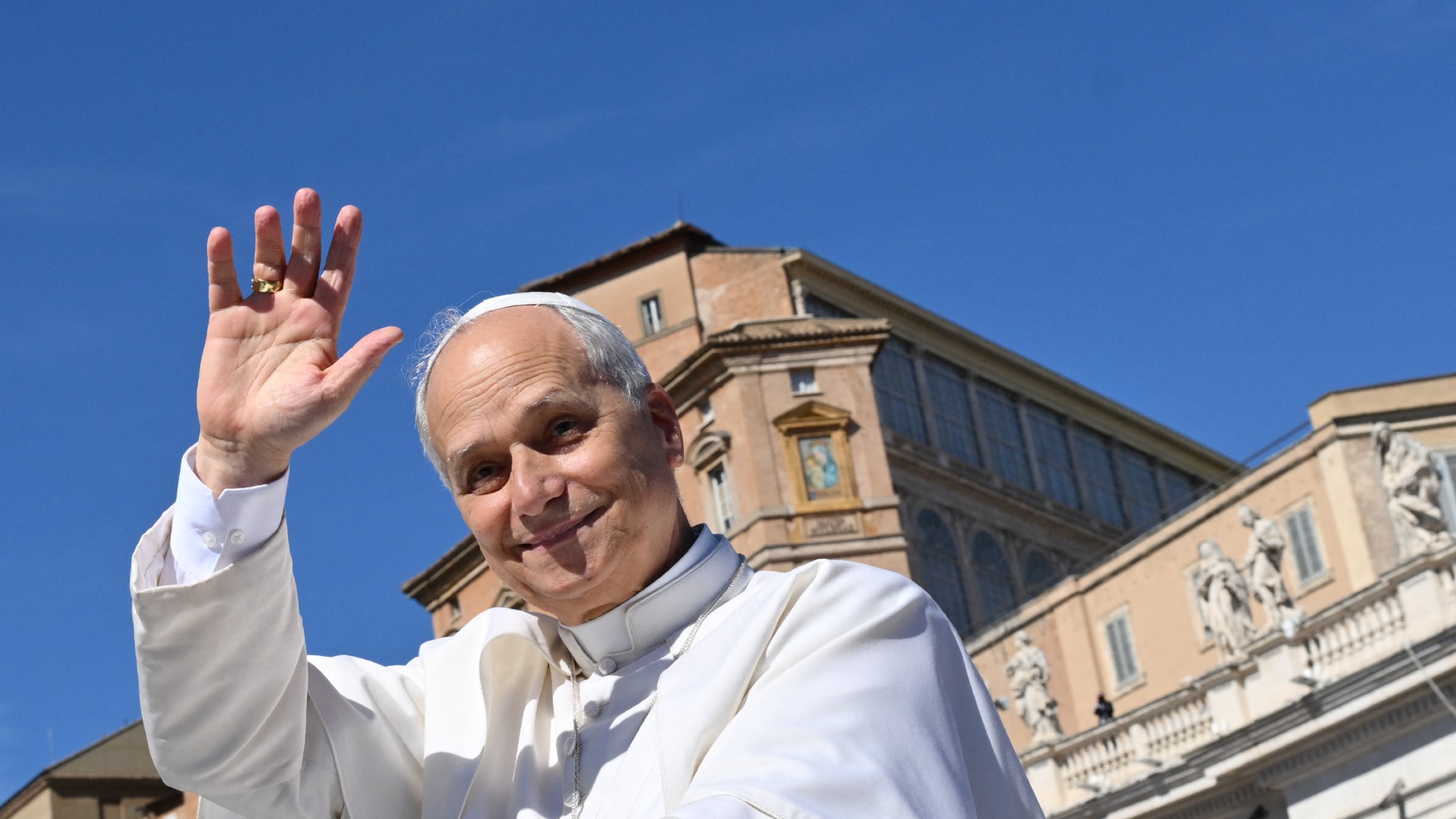 Pope Leo wants to change the Vatican’s murky finances
Pope Leo wants to change the Vatican’s murky financesThe Explainer Leo has been working to change some decisions made by his predecessor
-
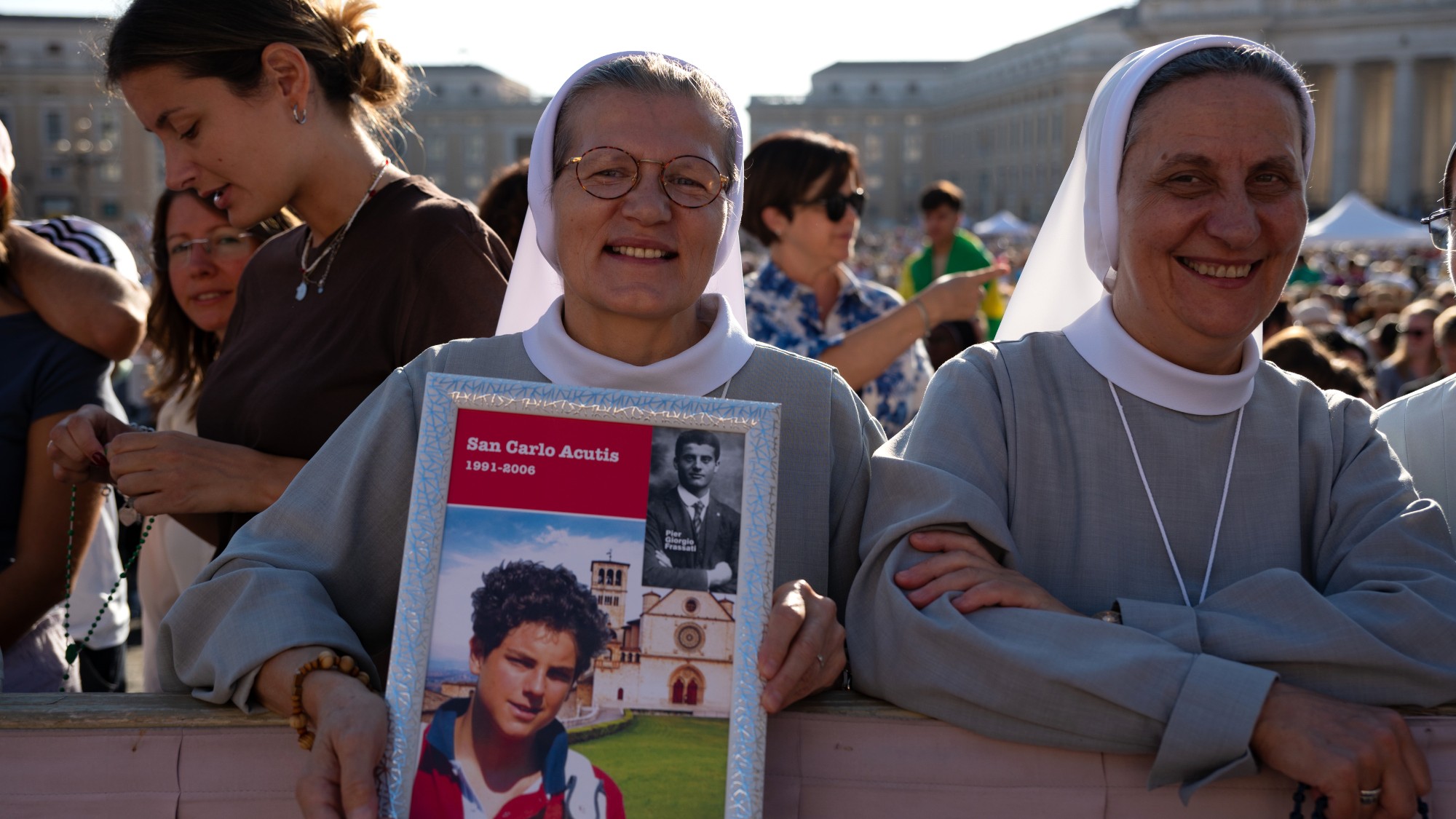 Pope Leo canonizes first millennial saint
Pope Leo canonizes first millennial saintSpeed Read Two young Italians, Carlo Acutis and Pier Giorgio Frassati, were elevated to sainthood
-
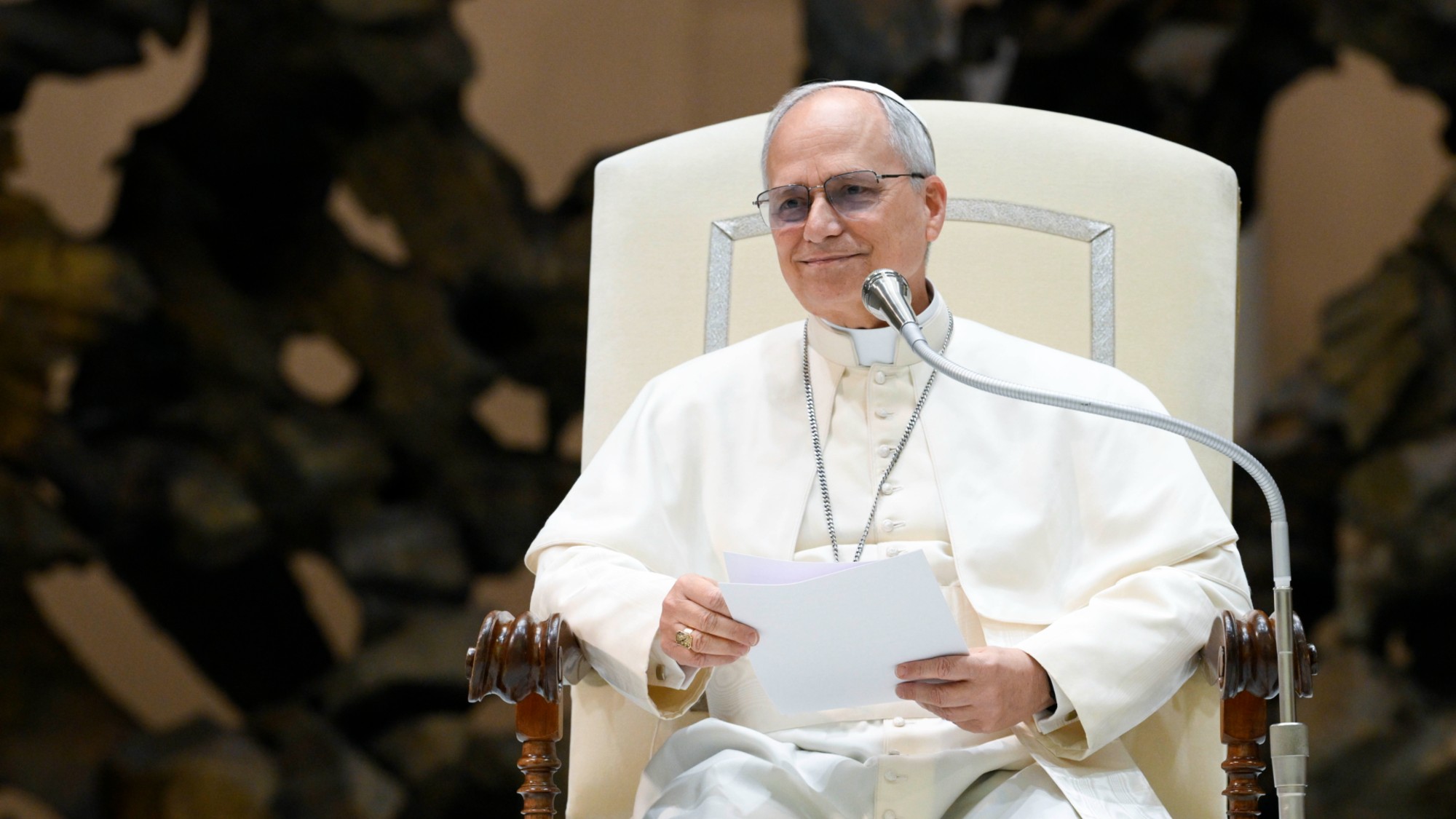 Where the new Pope Leo XIV stands on social issues
Where the new Pope Leo XIV stands on social issuesThe Explainer The first American pontiff is expected to continue some of his predecessor's work
-
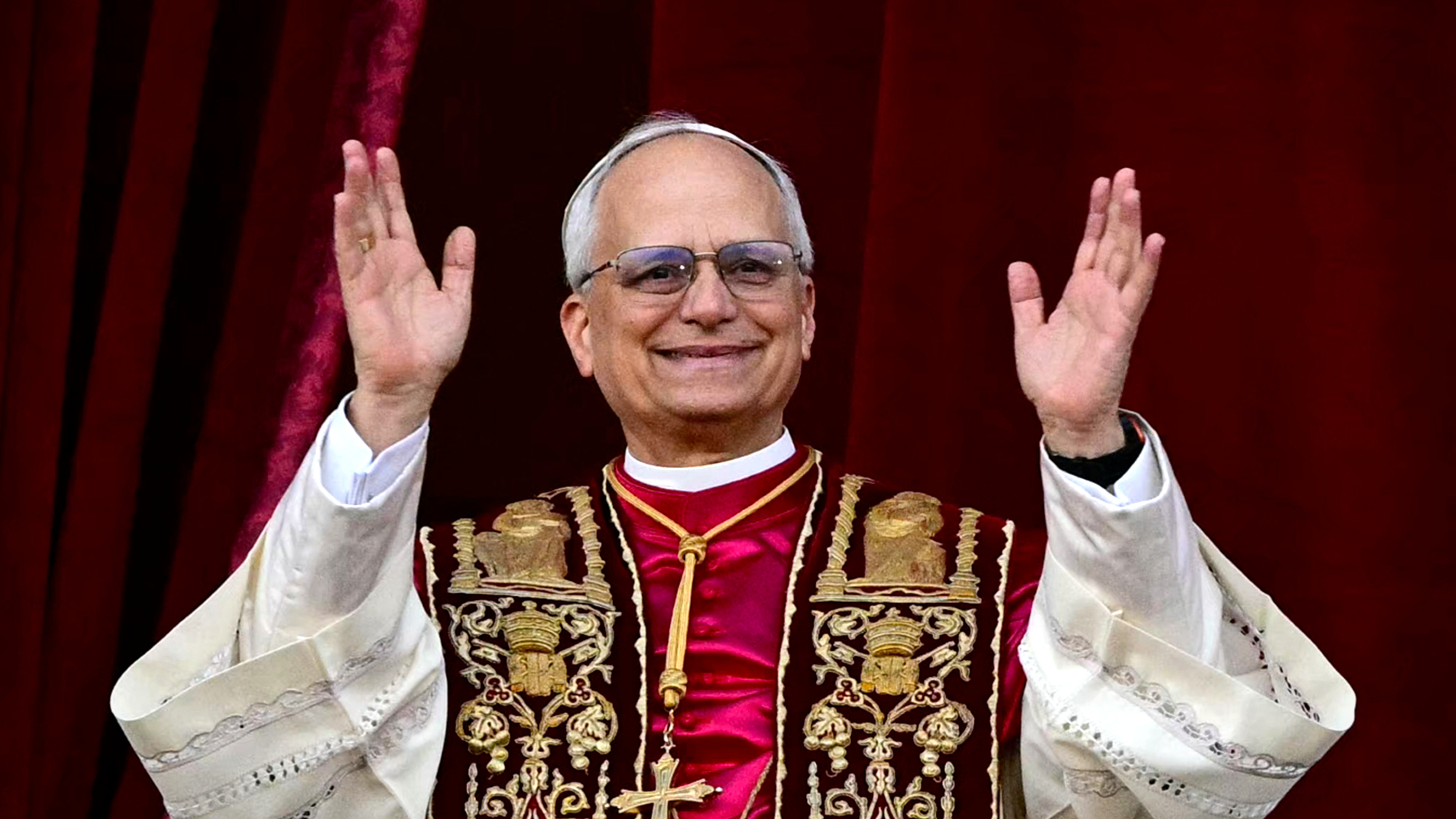 Prevost elected first US pope, becomes Leo XIV
Prevost elected first US pope, becomes Leo XIVspeed read Cardinal Robert Francis Prevost is a Chicago native who spent decades living in Peru
-
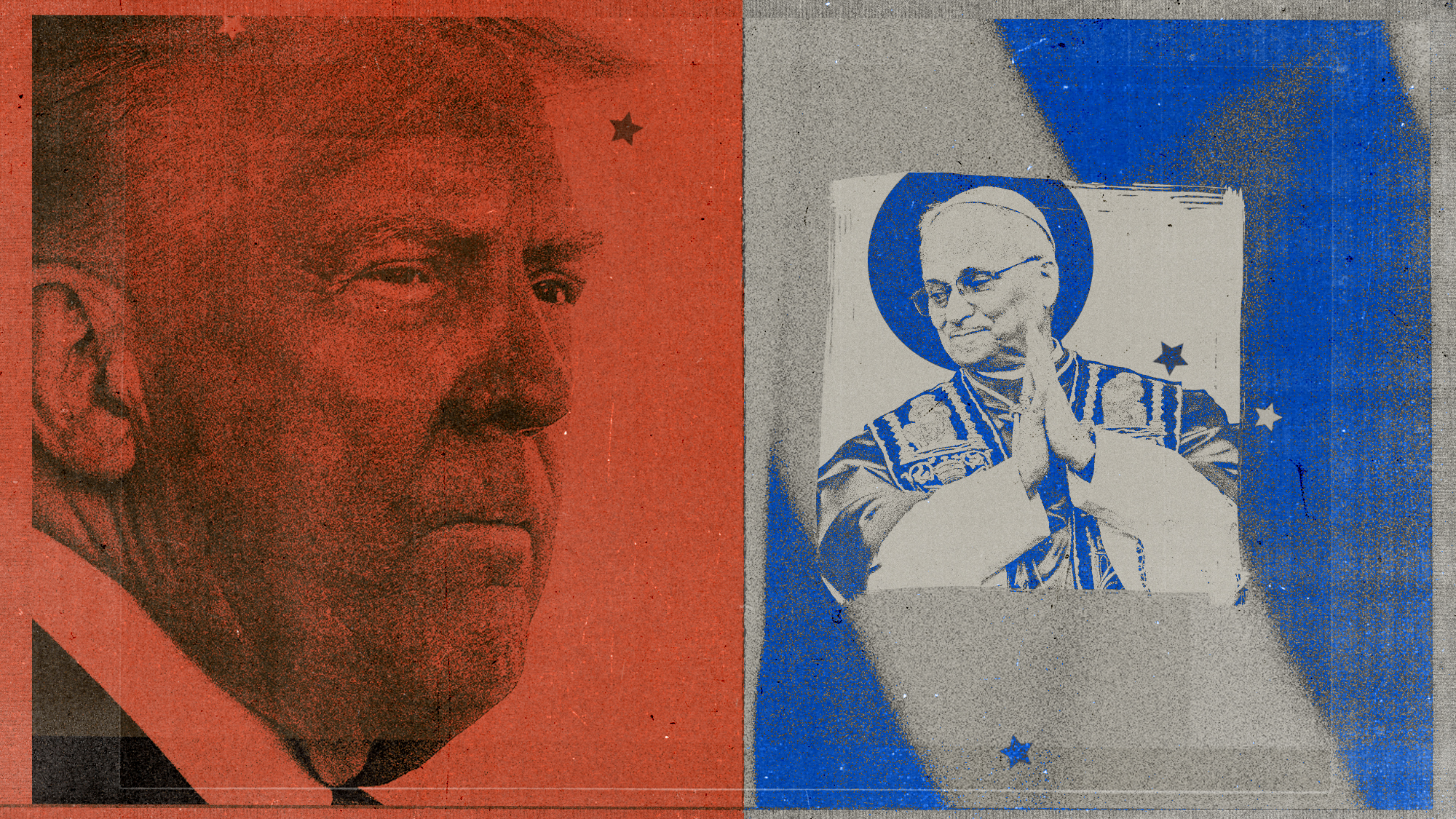 Leo XIV vs. Trump: what will first American Pope mean for US Catholics?
Leo XIV vs. Trump: what will first American Pope mean for US Catholics?Today's Big Question New pope has frequently criticised the president, especially on immigration policy, but is more socially conservative than his predecessor
-
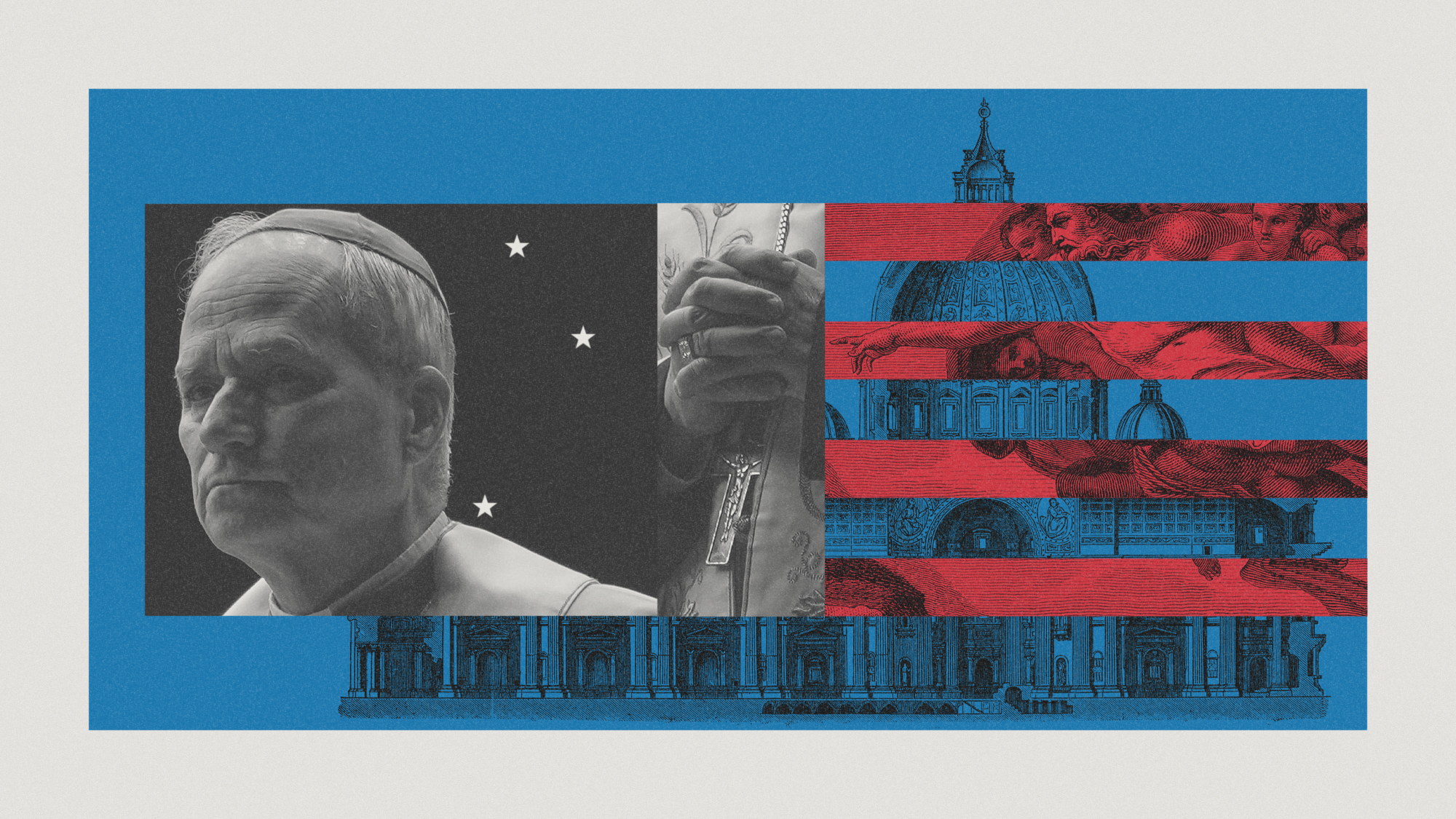 Could the next pope be an American?
Could the next pope be an American?Today's Big Question Cardinal Robert Francis Prevost is a possible 'superpower pope'
-
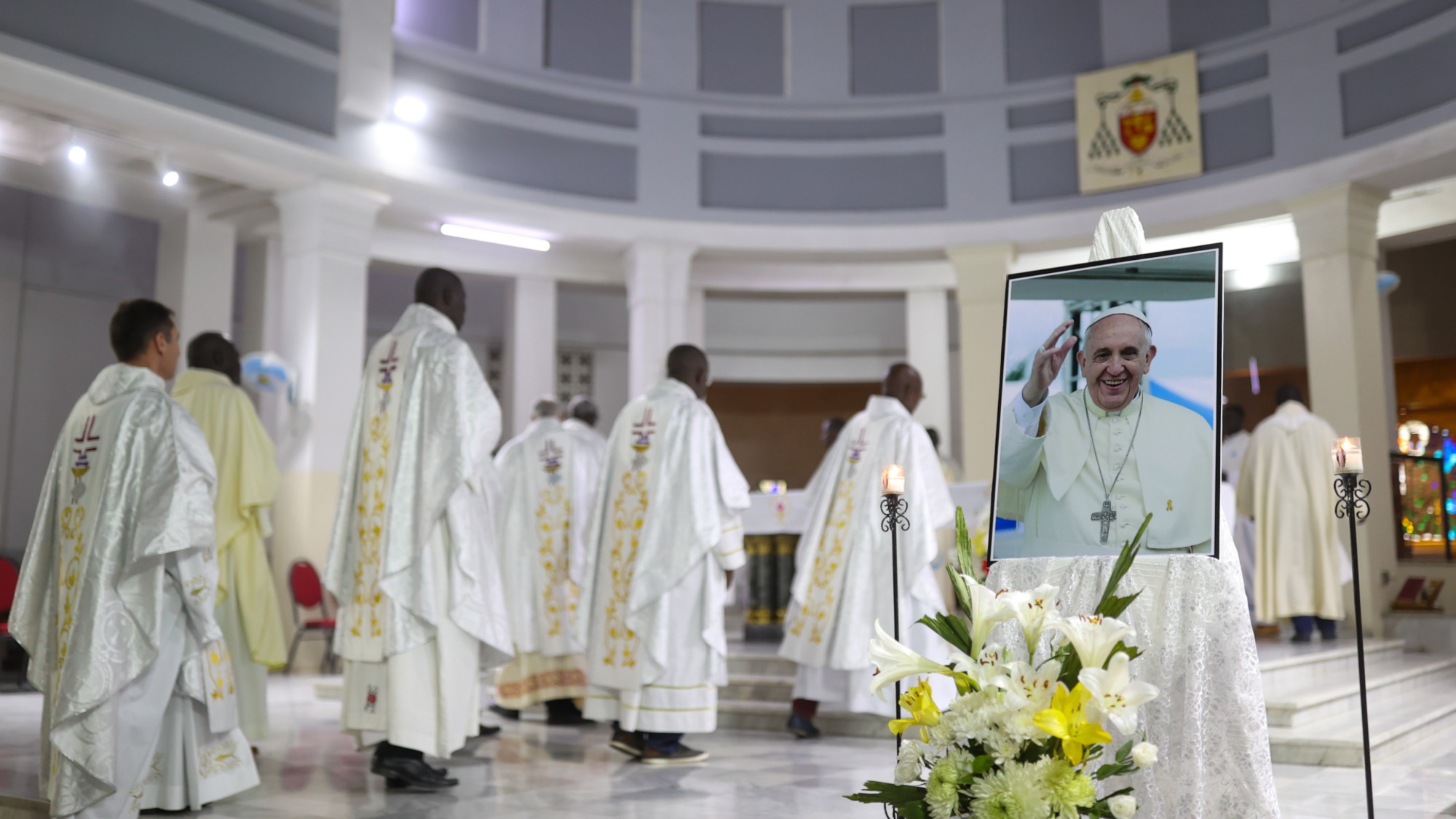 What would an African pope mean for the continent?
What would an African pope mean for the continent?Today's Big Question The Catholic Church has never had a pope from Africa in its modern history